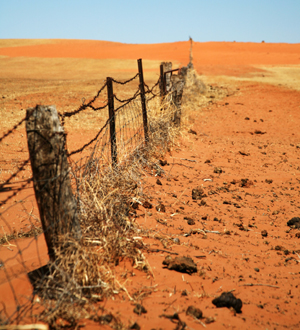Societal risks largely missed
 A new study warns Australia has drastically underestimated the threat of climate change.
A new study warns Australia has drastically underestimated the threat of climate change.
The new report, Disaster Alley, was compiled by the Breakthrough Centre for Climate Restoration.
It predicts climate change could displace tens of millions of people from swamped cities, cause intractable political instability and push fragile states to fail.
“Global warming will drive increasingly severe humanitarian crises, forced migration, political instability and conflict. The Asia Pacific region, including Australia, is considered to be ‘disaster alley’ where some of the worst impacts will be experienced,” the report says.
“Australia’s political, bureaucratic and corporate leaders are abrogating their fiduciary responsibilities to safeguard the people and their future wellbeing. They are ill-prepared for the real risks of climate change at home and abroad.”
One of the report’s authors, former chairman of the Australian Coal Association and chief executive of the Australian Institute of Company Directors Ian Dunlop, says the impacts of climate change are happening now.
“Once these effects start, then they unfold right the way through the system as an accelerant,” Mr Dunlop said.
“Natural disasters lead to social pressures, to increasing conflicts, competing claims for scarce resources. These fuel extremist positions, which could be religious, tribal, or political, which can lead to mass migrations. We are going to see a lot of people start moving, in our region especially, and to think we stop that by finessing things like ‘stop the boats’, is frankly naive.”
“Climate change has to become seen as a reason for far greater levels of global cooperation than we’ve seen before. If we don’t see it that way, then we’re going to be in big trouble. This problem is bigger than any of us, it’s bigger than any nation state, any political party.
The Federal Government’s 2016 defence white paper identified climate change as one of the six key drivers that will “shape the development of Australia’s security environment to 2035”.
“Climate change will be a major challenge for countries in Australia’s immediate region. Climate change will see higher temperatures, increased sea-level rise and will increase the frequency and intensity of extreme weather events. These effects will exacerbate the challenges of population growth and environmental degradation, and will contribute to food shortages and undermine economic development,” the paper says.
“Instability in our immediate region could have strategic consequences for Australia should it lead to increasing influence by actors from outside the region with interests inimical to ours. It is crucial that Australia help support the development of national resilience in the region to reduce the likelihood of instability.”
A Senate inquiry into the national security threats of climate change will report in December.








 Print
Print